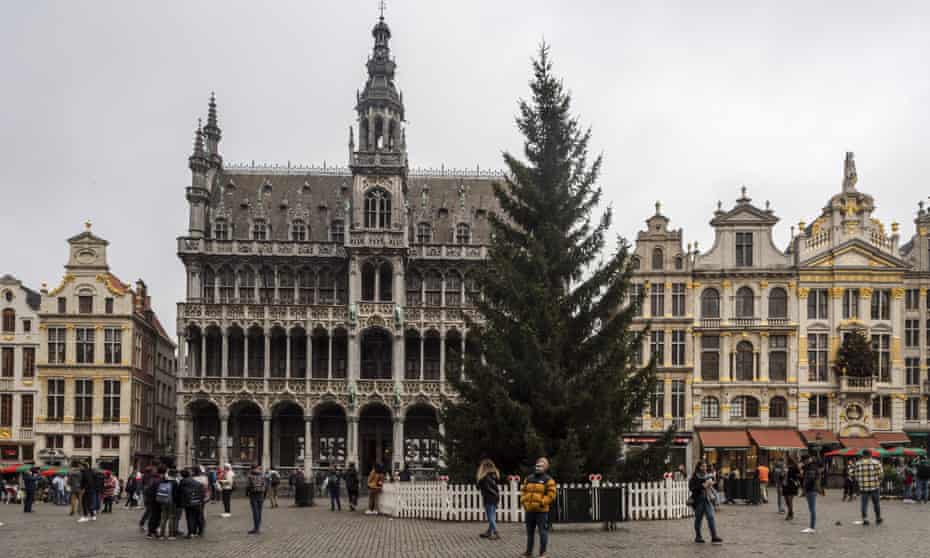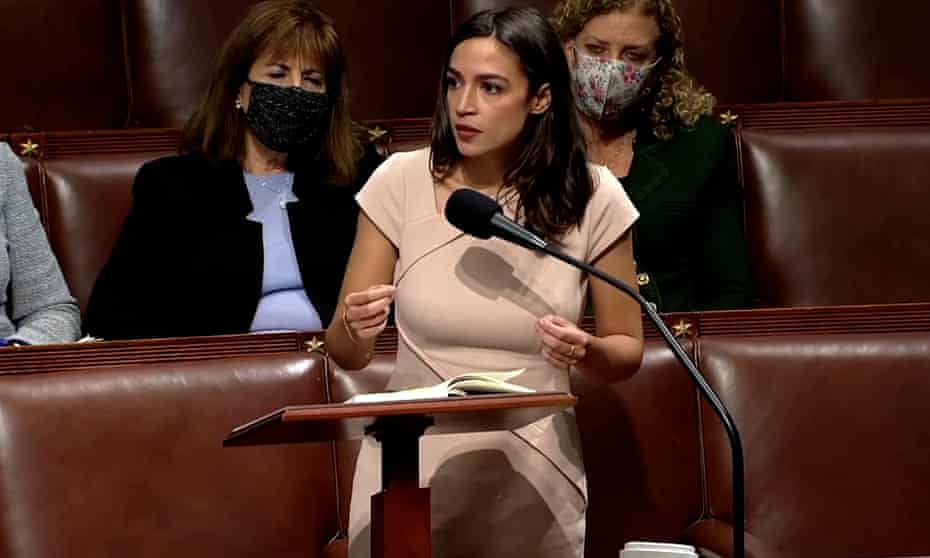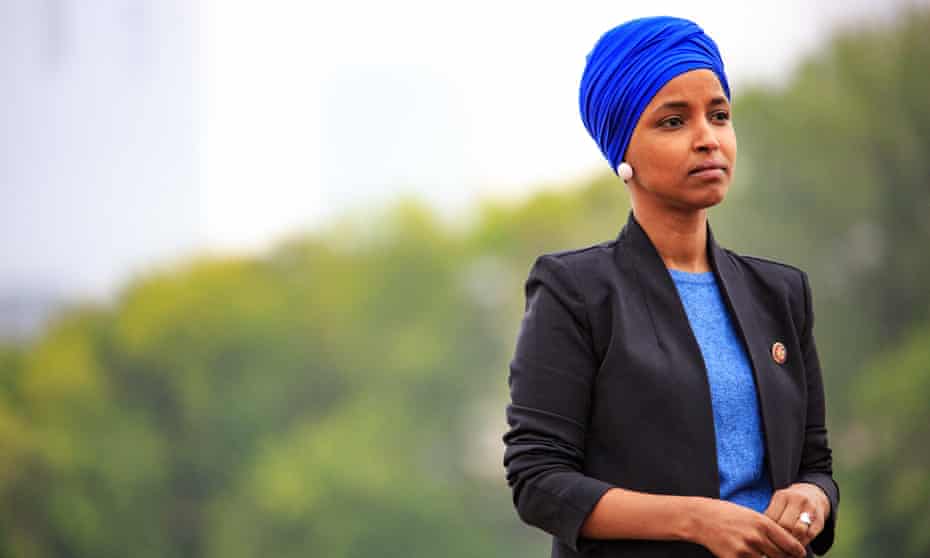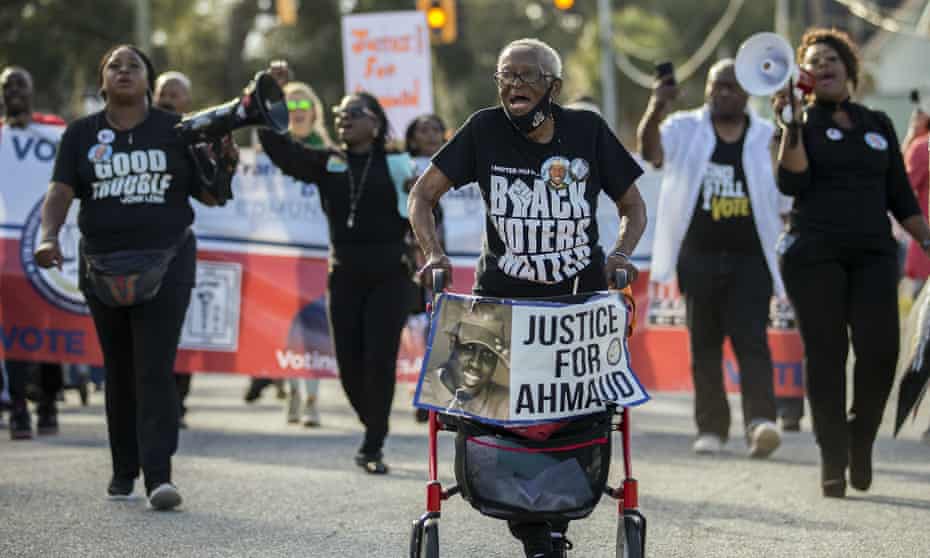President Biden said South Africa has turned down vaccine doses. But the issue is more complicated than that.

President Biden on Monday rebutted criticism that the United States is hoarding doses of coronavirus vaccines at the expense of South Africa and other middle- and low-income countries, pointing to the fact that South Africa has turned down additional doses in recent days.
But the story of vaccines in Africa is far more complicated than a matter of supply — a reality that became evident as vaccine availability emerged as a flash point in the days after a potentially dangerous new virus variant, dubbed omicron, was identified in southern Africa.
That story includes issues of access, fragile health-care systems and the difficulty of making sure Pfizer’s vaccine remains ultracold.
South Africa faces challenges that mirror many of those that plagued the United States in the early days of its vaccination campaign and even today. South Africa did not begin its vaccination efforts until May, six months after the United States and other Western countries. And it has struggled to get doses to hard-to-reach populations and faced significant vaccine hesitancy, much like the United States and several European countries.
“Why should we be surprised that we need to do vaccine education and behavioral interventions in South Africa when it took us a pretty heavy lift?” said Saad B. Omer, director of the Yale Institute for Global Health. “We are not done with that job in the U.S.”
The U.S. government has “all these people who understand these end-to-end solutions — from increasing supply to actually delivering vaccine — and they are nowhere to be found” in Africa, Omer said.
Experts have said the omicron variant, which has now been confirmed in numerous countries, is the predictable outcome of vast vaccine inequity. They have called on the United States, European countries and global bodies such as the World Health Organization to do more to get doses shipped to low- and middle-income countries. As long as large numbers of people remain unvaccinated, experts argue, the coronavirus has opportunities to mutate and continue spreading. It remains unclear where the omicron variant originated.
Drugmaker Pfizer said five of the eight countries included in a travel ban imposed by the United States — Malawi, Mozambique, Namibia, South Africa and Zimbabwe — have asked the company in the last several months to pause shipments because of challenges with vaccine uptake.
The company said it expects by the end of the year to ship 43 million doses to the eight southern African countries covered by the U.S. travel ban.
“Given that we have sufficient stock on hand in the country, it doesn’t make sense to receive any more orders, so we have pushed back some of those orders into the early part of next year. We are well-stocked for the moment,” said Ron Whelan, who heads the covid-19 task team at health insurer Discovery Ltd., which has been involved in the rollout of vaccine doses in South Africa. Discovery worked alongside the South African government to secure vaccine doses and set up a distribution system across the country.
Whelan said South Africa’s vaccination program peaked at about 211,000 vaccinations a day. By September, the national vaccination rate had slowed to about 110,000 per day.
He pointed to three factors: significant vaccine hesitancy, apathy and structural barriers, which include people being unable to afford to travel to vaccine sites. He also noted that South Africa’s vaccination program started six months after those in Western countries, which began vaccinating people shortly after Pfizer-BioNTech’s and Moderna’s vaccines were authorized in December 2020.
“I can tell you it was extremely hard to get access to vaccines especially when you had countries like Canada and the U.S. and various other players ordering vaccines well in advance and in quantities three to four times more than they required,” Whelan said.
The White House said Monday that several federal agencies are working with African experts and institutions to provide resources and technical and financial support in the region to expand vaccine access. It said it has provided more than $273 million through the U.S. Agency for International Development to southern African countries, including nearly $12 million to deliver and distribute vaccine doses.
Just five African countries — fewer than 10 percent of the total on the continent — are projected to reach the year-end target of fully vaccinating 40 percent of their populations, unless the pace of vaccinations accelerates. Africa has fully vaccinated 77 million people, or just 6 percent of its population.
Nearly 60 percent of the U.S. population has been fully vaccinated, and more than 40 million Americans have received a booster shot, according to The Washington Post’s vaccination tracker. In South Africa, about 35 percent of the population is fully vaccinated, according to the South African Department of Health, more than in most African nations. Just 3 percent of Malawi’s population, for instance, has been fully vaccinated, according to Our World in Data.
The number of Americans who have received a booster shot exceeds the number of people who have gotten a single vaccine dose in the eight African countries combined on the U.S. travel ban, according to an analysis published Monday by Public Citizen, a consumer advocacy group. About 30 million people total across Botswana, Eswatini, Lesotho, Malawi, Mozambique, Namibia, South Africa and Zimbabwe have received at least one dose, according to the analysis.
Higher-income countries have committed to donate 1.98 billion doses around the world; the United States has pledged more than half of those doses — 1.1 billion. About 20 percent of those doses have been delivered.
Global health experts said a confluence of factors, including sometimes unpredictable deliveries from vaccine manufacturers and limited health-care capacity, have created challenges in ensuring doses make it into arms. Many countries, including South Africa, also went several months without receiving any doses and then received millions at once, overwhelming health-care systems.
In the United States, the Trump administration established Operation Warp Speed to not only help manufacture millions of vaccine doses, but also to help quickly distribute those doses on an unprecedented scale. That effort faced significant challenges during the first weeks of the U.S. vaccination rollout, even as the Defense Department and Department of Health and Human Services worked to harness the military’s logistical infrastructure.
“There’s a reason that Operation Warp Speed didn’t just place an order with Pfizer and get vaccines. There was a whole infrastructure to mass-develop vaccines, expand vaccine production and work out some of the logistics around delivery,” said Zain Rizvi, research director at Public Citizen.
“The stat that always gets me is the Pfizer vaccine was authorized Dec. 11. … Imagine if on Dec. 11 last year, the U.S. government said we’re launching Warp Speed for the world,” Rizvi added.
Many African countries lack proper storage for vaccines such as Pfizer’s, which needs to be stored at ultracold temperatures. With some vaccine donations close to their expiration dates, some countries feel they will not have enough time to distribute and safely administer them, experts say. Whelan said that while South Africa has sufficient storage for vaccines such as Pfizer’s, most countries in Africa lack the resources.
“Supply remains important, but it’s now time to shift attention to delivery of doses,” said Amanda Glassman, senior fellow at the Center for Global Development. “It would be great to have more visibility on how many vaccines do we have right now and what are we doing to get them out there and are we using all possible strategies to get them out there.”
Africa, the second-largest continent by size, consists of 54 countries, each with its own set of challenges in obtaining and distributing vaccine doses. While South Africa has struggled with hesitancy, among other issues, other countries have distributed their doses fairly quickly and have asked for more supply. In Botswana, national surveys showed there was a 76 percent acceptance rate of vaccines, Malebogo Kebabonye, director of health services at Botswana’s Ministry of Health and Wellness, told the World Health Organization.
“Vaccine distribution and vaccine acceptance arguments are weaponized against the idea of expanding supply,” Rizvi said. “You don’t say Canada doesn’t deserve vaccines because there are hesitancy challenges in the U.S., but somehow it’s acceptable to do that on the African continent.”




